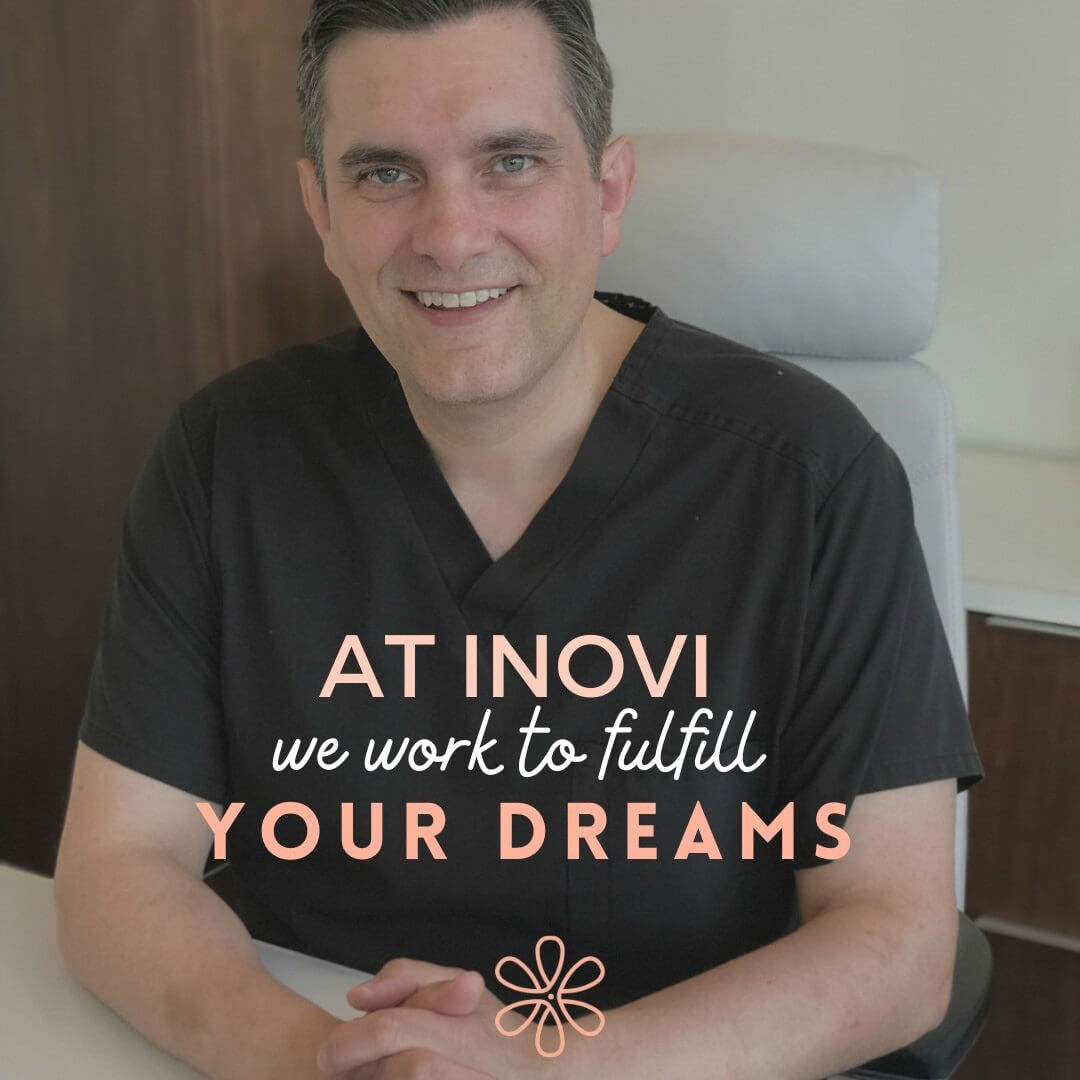

Success rates with IVF are much higher than Clomid or Letrozole with Intrauterine insemination (IUI) and require a fertility specialist (reproductive endocrinologist) to perform the IVF procedure in a fertility center with specialized IVF laboratory equipment. Our fertility clinic was designed to provide you with a great experience and we will guide and educate you every step of the way! Our Houston IVF facility is convenient to reach and easily accessible to most locations in the greater Houston area including Sugarland, Katy, Cypress and the Woodlands.
What is IVF (In Vitro Fertilization)?
IVF provides a path to overcome many problems associated with infertility. In this procedure, the eggs are retrieved from your body and combined with your partner’s sperm (or donor eggs or donor sperm if you have chosen a donor) to allow fertilization to occur in the IVF lab with the goal of producing embryos. Depending on your treatment plan, your infertility specialist may recommend ICSI for male infertility issues, or preimplantation genetic testing (previously called preimplantation genetic diagnosis or PGS) to help further select the healthiest embryos which will provide the highest IVF success rates.
In Vitro Fertilization
IVF is a fertility treatment in which sperm and eggs are combined in a laboratory to allow fertilization to occur outside of the body, and then the fertilized egg (embryo) is placed back into the woman’s uterus (embryo transfer).
“I love seeing the transformation people undergo from being discouraged to seeing the ultrasound and hearing the heartbeat. This is a process that transforms lives.”
What Are Benefits of IVF (In Vitro Fertilization)?
The benefits of IVF apply to a wide range of patients, including those who:
- Lack success with prior infertility treatments or fertility services
- Experience low ovarian function
- Have few remaining eggs (oocytes) or want to perform egg freezing
- Develop blocked fallopian tubes (tubal factor infertility)
- Exhibit male causes of infertility
- Desire genetic testing of their embryos (Preimplantation genetic testing) for genetic disorders
- Experience endometriosis and have pelvic scarring or low egg counts from damage to the ovaries from endometriosis
- Wish to postpone pregnancy until a later date (Fertility preservation) due to cancer, other health care issues or desire to postpone family building.
Getting Ready For Your IVF Procedure
- Bring your records to your first new patient appointment and complete a medical history form
- Meet with your infertility specialist and your future fertility team for an initial consultation
- Complete hormone testing and imaging of your uterus, tubes and ovaries with a transvaginal ultrasound and hysterosalpingogram (HSG)
- Have a semen analysis completed for the male partner
- Choose a sperm donor, egg donor, or gestational carrier if applicable, and meet with a reproductive psychologist for counseling to discuss third-party reproduction
- Perform genetic testing, such as carrier screening, for common genetic conditions or testing for your specific situation if you or your partner are at risk for or affected by a genetic condition, and meet with a genetic counselor if indicated
- Perform screening blood tests for infectious disease
- Meet with your physician to discuss and further review your individual IVF plan
- Meet with our financial counselor to review options for covering IVF cost and IVF treatment
Tell Us How We Can Help You Fulfill Your Dream Of A Family!
Sign up to attend an informational session in our office to learn more about our great success rates and other families along the journey.
Your IVF Evaluation

Prior to beginning ART, established and new patients will be evaluated to maximize your chances for a healthy pregnancy. Being in the best health possible is important to achieving successful results and having a healthy Body Mass Index (BMI). We make certain to test for chronic medical conditions such as diabetes, hypertension and asthma, and develop a comprehensive plan to control these conditions prior to conception.
Carrying extra weight can be an added stress on the IVF process and increase your chances of miscarriage and preterm birth. At Inovi Fertility & Genetics Institute, our counselors offer options to help you manage your weight and determine your BMI prior to the procedure so that you are in the best shape possible prior to taking that step.
Blood Testing
General- Your blood type will be determined and you will receive screening for various conditions and immunities (Varicella, Rubella, CMV) that could affect your pregnancy and IVF procedure. Genetic tests including carrier screening may be done or requested depending on your family and medical history.
Ovarian Reserve Testing- These tests measure women’s egg quantity, quality and ability to reproduce.
Other Tests Included in Ovarian Reserve-
- Measurement of FSH and Estradiol levels on cycle day 2, 3 or 4
- Antral Follicle Count (AFC) – pelvic ultrasound done early in the cycle to count the eggs available (follicles) for IVF treatment
- Anti-Mullerian Hormone Test (AMH) – done at any time during the cycle
These tests are usually performed during a woman’s menstrual cycle on certain specific days.
Semen Testing
This will be performed to determine sperm quality and may be repeated throughout the process to provide best information for IVF success.
Uterus Testing
Your uterine function and anatomy is important to your pregnancy. We will evaluate your uterus prior to IVF with a hysterosalpingogram, a saline infusion sonohysterography (ultrasound) or hysteroscopy to check for abnormalities that can affect your IVF success rates. The hysterosalpingogram can also test for tubal causes of infertility such as hydrosalpinges (dilated fallopian tubes) which can decrease your IVF success rates with by 50%, and the hydrosalpinges can be removed by laparoscopy before the embryo transfer.
FAQS

What is the IVF Process?
Prior to beginning your IVF cycle, you will be prescribed oral contraceptive pills or estrace (estrogen) for 10 – 14 days prior to starting your stimulation. Once your cycle starts, your fertility doctor will prescribe you gonadotropins (injectable fertility drugs) to be taken daily such as Follicle-Stimulating Hormone (FSH), Luteinizing Hormone (LH) and an antagonist (Ganirelix) or Micro-Dose Lupron to prevent early ovulation.
These hormones stimulate your body’s ability to produce multiple eggs and provide you with the best chance for ideal pregnancy conditions. During this time, your doctor measures your hormone levels and performs multiple transvaginal ultrasounds so both you and your partner can see and follow the progress of your egg development.
Once your eggs have matured, as determined by the ultrasound findings and hormone levels, they will be removed in our office through a process called an Oocyte or Egg Retrieval. Your doctor performs the procedure with ultrasound-guided equipment in the comfort of our clinic.
What Happens After IVF Retrieval?
After the egg retrieval, your eggs are combined with the sperm and fertilized in the lab, most often through ICSI (intracytoplasmic sperm injection).
After a woman’s eggs are fertilized they develop in the laboratory for 5-6 days (blastocyst stage) under the care of an embryologist and are typically transferred back to your uterus in another cycle. This method is called “Freeze-all” and allows for the best pregnancy rates with IVF treatment since your estrogen and progesterone hormone levels will have returned to normal levels following the egg retrieval. Your uterus will then be prepared for the the embryo transfer. The embryos are transferred through your cervix into your uterus (embryo transfer) with a thin catheter, you will be given fertility hormones for 6-7 weeks to support and nurture your new pregnancy. Transvaginal ultrasounds will also be performed to confirm the progress of your new pregnancy, provide date of expected delivery and ensure your baby has a healthy development.
What happens if the sperm cannot fertilize my egg?
At times some people experience unexplained infertility or male factor infertility (low sperm counts or low motility) where the sperm cannot fertilize the egg. In this case, your doctor may suggest an added step in the IVF process called ICSI. Instead of the sperm being allowed to fertilize the egg on their own in the lab, an additional fertility procedure (ICSI) is needed to increase your chances of pregnancy.
In this situation, the healthy sperm are directly injected into the eggs in a process called Intracytoplasmic Sperm Injection or ICSI. ICSI raises your chances of pregnancy by increasing the total percentage of eggs that are fertilized.
When Would I Want to Delay Embryo Transfer?
Under certain circumstances, you may choose to freeze (cryopreserve) the fertilized eggs (embryos) for months to years before having an embryo transfer. The decision to freeze your embryos is often determined through discussions with your reproductive team in combination with your doctor, partner and team members based on the following:
- Medical conditions that need to be resolved or managed (e.g. diabetes)
- Need for hysteroscopy prior to transfer
- Need to remove uterine fibroids
- Need for removal of fallopian tubes due to hydrosalpinx
- Desire to delay childbearing due to work or social reasons
What Are IVF Results and Success Rates?
In order to accurately interpret typical IVF success rates you need to understand the differences between clinical pregnancy rates and live birth rates since they are not the same. Clinical pregnancy rates are the percentage of IVF cycles that result in a pregnancy seen on ultrasound at 6 weeks. Live births would be the birth of a live baby after 6 months (ideally 9 months) of pregnancy. The difference is that pregnancies may end early or prematurely prior to birth of the fetus.
Success rates can depend on these factors:
- Past reproductive history
- Age of the female
- Causes of infertility
- Number of embryos available for transfer
- Medical or genetic disorders of the fetus or parents
- Events that occur during pregnancy
What are the risks of IVF?
As with any surgical procedure you may experience risks or side effects from fertility drugs. At Inovi we do everything possible to lower your chances of these and several other conditions such as:
- Multiple births (typically twins, not triplets)
- Ovarian hyperstimulation syndrome (fluid collection around ovaries)
- Ectopic pregnancy
- Miscarriage
- Birth of children with preventable genetic disorders
- Low birth weight and premature delivery
After your IVF procedure:
- Take a pregnancy test two weeks after your transfer and discuss the results with your physician
- Continue taking fertility drugs, estrogen and progesterone, that provide hormonal support of the pregnancy (luteal phase support)
- Follow up with your fertility specialist for your first and second transvaginal ultrasounds in early pregnancy
- Continue your pregnancy care with an ObGyn of your choice after 10 weeks
Other information you might find helpful can be found here:
Posts Related to In Vitro Fertilization
Understanding IVF: Is It Right for Your Fertility Journey

3 Minute Read: Deciding to have a baby is exciting, but if conception is proving difficult, things can quickly become frustrating. When faced with infertility or difficulty conceiving, many people […]
How Long Is the Process of IVF?

Are you experiencing difficulty having a child? If so, you’re not alone. Reports show that up to one in seven couples struggle to become pregnant. In America, 33 percent of people have […]




